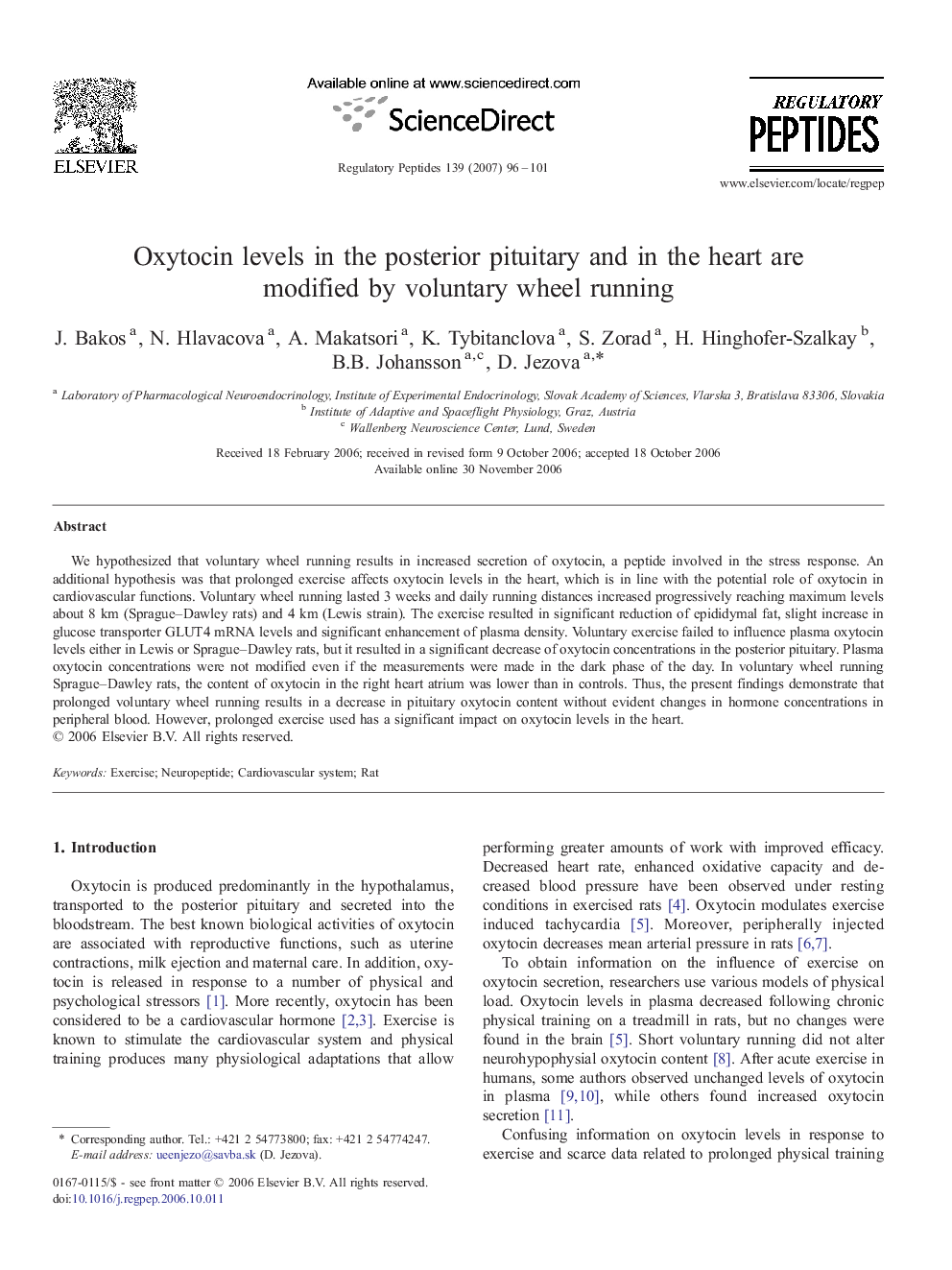| Article ID | Journal | Published Year | Pages | File Type |
|---|---|---|---|---|
| 2023446 | Regulatory Peptides | 2007 | 6 Pages |
We hypothesized that voluntary wheel running results in increased secretion of oxytocin, a peptide involved in the stress response. An additional hypothesis was that prolonged exercise affects oxytocin levels in the heart, which is in line with the potential role of oxytocin in cardiovascular functions. Voluntary wheel running lasted 3 weeks and daily running distances increased progressively reaching maximum levels about 8 km (Sprague–Dawley rats) and 4 km (Lewis strain). The exercise resulted in significant reduction of epididymal fat, slight increase in glucose transporter GLUT4 mRNA levels and significant enhancement of plasma density. Voluntary exercise failed to influence plasma oxytocin levels either in Lewis or Sprague–Dawley rats, but it resulted in a significant decrease of oxytocin concentrations in the posterior pituitary. Plasma oxytocin concentrations were not modified even if the measurements were made in the dark phase of the day. In voluntary wheel running Sprague–Dawley rats, the content of oxytocin in the right heart atrium was lower than in controls. Thus, the present findings demonstrate that prolonged voluntary wheel running results in a decrease in pituitary oxytocin content without evident changes in hormone concentrations in peripheral blood. However, prolonged exercise used has a significant impact on oxytocin levels in the heart.
